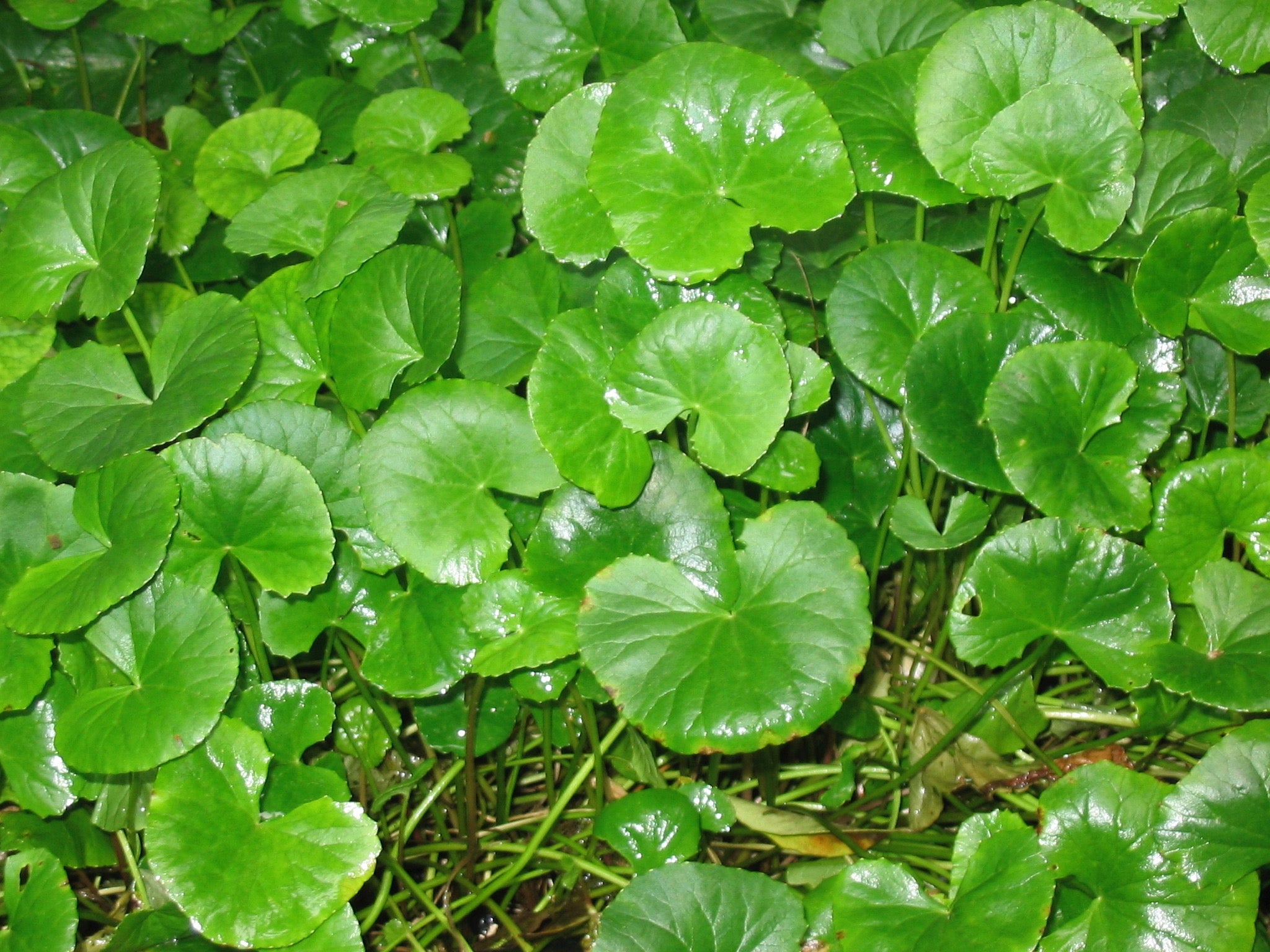Gotu Kola (Centella asiatica): The Herb of Longevity and Cognitive Enhancement
Gotu Kola, scientifically known as Centella asiatica, is a small herbaceous plant that has been revered for centuries in traditional medicine systems for its numerous health benefits. Also known as Brahmi or Indian Pennywort, Gotu Kola is native to various regions of Asia, including India, China, and Southeast Asia. It has a rich history of use in Ayurveda, Traditional Chinese Medicine, and other traditional healing practices. In this article, we will explore the fascinating world of Gotu Kola, including its botanical features, chemical constituents, historical uses, and potential health benefits.
Botanical Features:
Gotu Kola is a low-growing perennial herb that thrives in tropical and subtropical regions. It has slender stems with small, kidney-shaped leaves that are arranged in a distinctive fan-like pattern. The plant produces inconspicuous pinkish-white flowers and bears small oval-shaped fruits. Gotu Kola is well-known for its creeping habit, with runners spreading across the ground, forming dense mats of foliage.
Historical Uses:
Gotu Kola has a long history of use in traditional medicine systems, particularly in Ayurveda and Traditional Chinese Medicine. In Ayurveda, it is considered a Rasayana, a rejuvenating herb known for its ability to promote longevity and enhance overall vitality. It is believed to support cognitive function, improve memory, and enhance concentration. Traditional Chinese Medicine regards Gotu Kola as a herb that strengthens the Qi (vital energy) and promotes healthy blood circulation.
Chemical Constituents:
The therapeutic properties of Gotu Kola are attributed to its diverse range of chemical constituents. It contains triterpenoid saponins known as asiaticosides, as well as other triterpenoids, flavonoids, polyphenols, and various vitamins and minerals. These bioactive compounds contribute to the herb's antioxidant, anti-inflammatory, neuroprotective, and wound-healing properties.
Potential Health Benefits:
1. Cognitive Enhancement: Gotu Kola is revered for its cognitive-enhancing properties. It is believed to improve memory, enhance concentration, and support overall brain health. The asiaticosides present in Gotu Kola have been shown to enhance neurogenesis, the growth of new neurons in the brain, which may contribute to its cognitive benefits.
2. Stress and Anxiety Relief: Gotu Kola is considered an adaptogenic herb, meaning it helps the body adapt to stress and promotes a sense of calm. It is believed to have anxiolytic properties, helping to reduce anxiety and promote relaxation.
3. Wound Healing: Gotu Kola has been traditionally used to support wound healing and skin health. It promotes collagen synthesis and helps strengthen connective tissues, making it useful for various skin conditions, including wounds, burns, and scars.
4. Anti-Inflammatory Effects: The anti-inflammatory properties of Gotu Kola have been well-documented. It helps reduce inflammation in the body and may be beneficial for inflammatory conditions such as arthritis, dermatitis, and gastrointestinal disorders.
5. Antioxidant Activity: Gotu Kola exhibits potent antioxidant activity, protecting cells from oxidative damage caused by free radicals. This may contribute to its overall anti-aging effects and support cellular health.
6. Venous Insufficiency and Circulation: Gotu Kola has been used traditionally to support healthy blood circulation and relieve symptoms of venous insufficiency, such as varicose veins and leg swelling. It may improve microcirculation and strengthen blood vessel walls.
7. Skin Health: Gotu Kola is valued for its skincare benefits. It promotes the production of collagen, enhances skin elasticity, and helps maintain a healthy complexion. It is often used in topical creams and ointments for various skin conditions, including acne, eczema, and psoriasis.
Usage and Preparations:
Gotu Kola can be consumed in various forms, including capsules, tablets, extracts, and teas. It can also be applied topically in creams and ointments for skin-related concerns. The dosage and form of Gotu Kola may vary depending on the desired effects and individual preferences. It is advisable to follow the instructions on the product label or consult with a healthcare professional for proper dosage and usage guidelines.
Precautions and Considerations:
Gotu Kola is generally considered safe for most individuals when used as directed. However, there are a few precautions to keep in mind:
1. Pregnancy and Breastfeeding: It is recommended to avoid using Gotu Kola during pregnancy and breastfeeding, as its safety during these periods has not been well-established.
2. Medications and Medical Conditions: Gotu Kola may interact with certain medications, including blood thinners, diuretics, and medications for diabetes. It is advisable to consult with a healthcare professional if you have any underlying medical conditions or are taking any medications.
3. Allergies: Some individuals may have allergies to Gotu Kola. It is important to discontinue use and seek medical attention if any allergic reactions occur.
In conclusion, Gotu Kola is a remarkable herb with a long history of traditional use and a range of potential health benefits. From cognitive enhancement and stress relief to wound healing and skincare, Gotu Kola offers a wealth of therapeutic properties. Whether consumed orally or used topically, this herb has been valued for its ability to promote vitality, rejuvenation, and overall well-being. As with any herbal supplement, it is recommended to consult with a healthcare professional before incorporating Gotu Kola into your health regimen, especially if you have any underlying medical conditions or are taking medications.





0 Comments